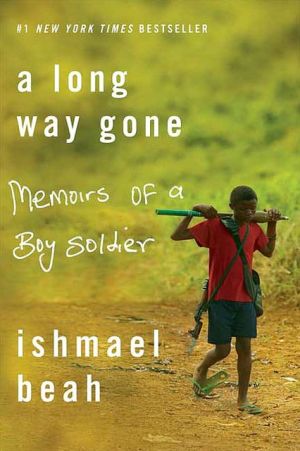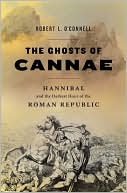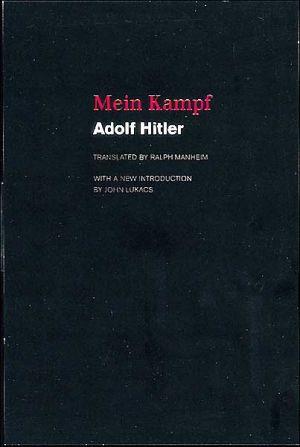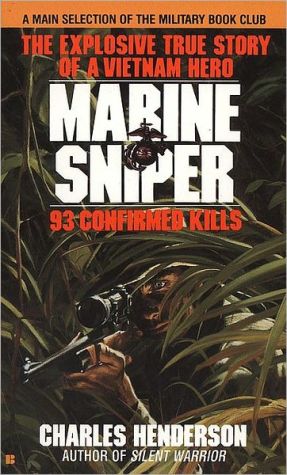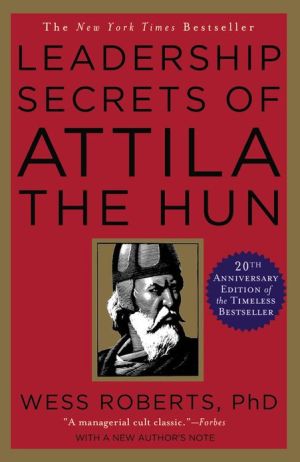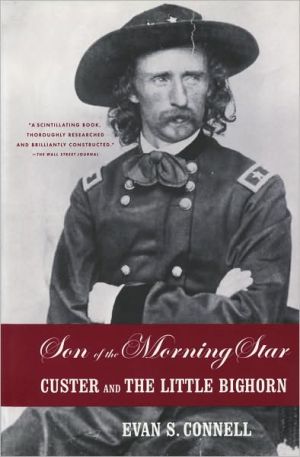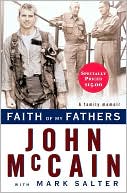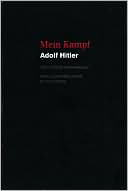The 188th Crybaby Brigade: A Skinny Jewish Kid from Chicago Fights Hezbollah: A Memoir
Look at me. Do you see me? Do you see me in my olive-green uniform, beret, and shiny black boots? Do you see the assault rifle slung across my chest? Finally! I am the badass Israeli soldier at the side of the road, in sunglasses, forearms like bricks. And honestly — have you ever seen anything quite like me?\ Joel Chasnoff is twenty-four years old, an American, and the graduate of an Ivy League university. But when his career as a stand-up comic fails to get off the ground, Chasnoff decides...
Search in google:
Look at me. Do you see me? Do you see me in my olive-green uniform, beret, and shiny black boots? Do you see the assault rifle slung across my chest? Finally! I am the badass Israeli soldier at the side of the road, in sunglasses, forearms like bricks. And honestly -- have you ever seen anything quite like me? Joel Chasnoff is twenty-four years old, an American, and the graduate of an Ivy League university. But when his career as a stand-up comic fails to get off the ground, Chasnoff decides it's time for a serious change of pace. Leaving behind his amenity-laden Brooklyn apartment for a plane ticket to Israel, Joel trades in the comforts of being a stereotypical American Jewish male for an Uzi, dog tags (with his name misspelled), and serious mental and physical abuse at the hands of the Israeli Army. The 188th Crybaby Brigade is a hilarious and poignant account of Chasnoff's year in the Israel Defense Forces -- a year that he volunteered for, and that he'll never get back. As a member of the 188th Armored Brigade, a unit trained on the Merkava tanks that make up the backbone of Israeli ground forces, Chasnoff finds himself caught in a twilight zone-like world of mandatory snack breaks, battalion sing-alongs, and eighteen-year-old Israeli mama's boys who feign injuries to get out of guard duty and claim diarrhea to avoid kitchen work. More time is spent arguing over how to roll a sleeve cuff than studying the mechanics of the Merkava tanks. The platoon sergeants are barely older than the soldiers and are younger than Chasnoff himself. By the time he's sent to Lebanon for a tour of duty against Hezbollah, Chasnoff knows everything about why snot dries out in the desert, yet has never been trained in firing the MAG. And all this while his relationship with his tough-as-nails Israeli girlfriend (herself a former drill sergeant) crumbles before his very eyes. The lone American in a platoon of eighteen-year-old Israelis, Chasnoff takes readers into the barracks; over, under, and through political fences; and face-to-face with the absurd reality of life in the Israeli Army. It is a brash and gritty depiction of combat, rife with ego clashes, breakdowns in morale, training mishaps that almost cost lives, and the barely containable sexual urges of a group of teenagers. What's more, it's an on-the-ground account of life in one of the most em-battled armies on earth -- an occupying force in a hostile land, surrounded by enemy governments and terrorists, reviled by much of the world. With equal parts irreverence and vulnerability, irony and intimacy, Chasnoff narrates a new kind of coming-of-age story -- one that teaches us, moves us, and makes us laugh. The Washington Post - Chris Bray Some of the book is the numbingly standard stuff of military memoirs, but it's a pleasure to read in spite of that typical problem.
THE RUSSIAN\ The Russian is poking my balls.\ It’s awkward.\ I’ve been trapped in this dank examination room since nine o’clock. In five minutes it’ll be nine-thirty, and I feel like a dope, what with my boxer shorts at my ankles and my dick in my hand so the Russian can get a good view.\ “Hmm,” he says.\ It’s Tuesday morning, the eighth of July, and I’m at the Israel Defense Forces Induction Center outside Tel Aviv. I arrived in Israel three weeks ago. Today is my first pre-army checkup.\ The Russian says something in Hebrew, but I can’t understand him through his thick Russian accent.\ “Huh?” I say.\ He switches to broken English. “You pee-nus hurt you?”\ “Lo!” I say in Hebrew, and shake my head. “Penis tov! My penis is fine.”\ The Russian scoots forward on his knees. He’s about sixty years old and bald. Even though he’s a doctor, he’s dressed like a plumber—plaid short-sleeve shirt, dirty jeans. I imagine that back in Russia he was a brain surgeon. Now he checks gonads for the Israeli Army.\ “Up,” he says.\ I lift my penis until it’s flat against my stomach.\ He squeezes my testicles gently as if trying to pick the perfect peach. His forehead is inches from my belly. I’m a hiccup away from a dishonorable discharge.\ “Cough,” he says.\ “Huh-hem.”\ He pulls his enormous Clark Kent eyeglasses off the crown of his head, presses them onto his nose, and jots a note on his clipboard, while I, in the meantime, try to think about anything in the world besides how much I hate holding myself while a nearsighted, balding Russian takes notes.\ I try to name every team in the National League.\ Cubs. Phillies. Mets.\ My visit to the Induction Center began at eight this morning, when I showed up at the front gate without so much as an appointment. “I can’t let you in without draft orders,” said the soldier guarding the entrance. He was a chubby kid, with blond hair, sunglasses, and an Uzi. He stood in a white booth next to a chain-link fence. A hundred yards behind him were the three redbrick buildings that made up the Induction Center com-\ plex.\ I explained in Hebrew that because I’d immigrated to Israel less than a month ago, I hadn’t yet received my draft orders. “But here,” I said, pulling out my brand-new national ID card. “I’m Israeli.”\ The soldier scrutinized my ID card. Then he looked at me, then back at the card, and then back to me. “Where’re you from?” he asked suspiciously.\ “The United States,” I said.\ “America,” he purred. “Where?”\ “Chicago.”\ “Chicago Bulls!” he cried. “Michael Jordan!”\ “I’ve driven past his house,” I said.\ He handed me my ID. “Straight ahead. Inside the middle building.”\ The Russian grabs the edge of his desk and hoists himself to his feet. “Bend over,” he orders. He must see the look of horror that flashes across my face, because he quickly adds, “You can put on your pants first.”\ Thank God.\ I bend over and touch my toes. The Russian taps my spine. “Your back’s crooked,” he says.\ “It is?” I shout through my legs, trying to sound surprised.\ “You ever have back pain?” he asks.\ The way I see it, I have two options. Option One: tell the truth, that is, confess to the Russian doctor that I was diagnosed with mild scoliosis when I was nine and that, three months ago, during a pickup basketball game at the JCC, I collapsed to the gymnasium floor with back pain so severe it took the paramedics thirty minutes just to roll me onto the stretcher. I would then have no choice but to inform the Russian that my personal physician in the States, Dr. Zielinski, had advised me not to enlist in the Israeli Army—not that Zielinski had thought the IDF would take me. “I can’t speak for Israel,” he’d said, “but a back as messed up as yours would never be allowed in the Marine Corps.”\ The problem with Option One is that if the Russian finds out about my back, he will assign me to a noncombat desk job. But I don’t want a desk job. I didn’t immigrate to Israel to type memos or change tires. I’m here because since I was seventeen years old, I’ve dreamed of jumping out of planes, charging up mountains, and hiking the desert with a pack on my back as a combat soldier in the Israeli Army. For this reason, I choose Op-\ tion Two:\ Lie.\ “My back’s perfect,” I say.\ “Hmm,” says the Russian.\ He massages the glands in my neck. He studies the soles of my feet like they’re a map of the sunken treasure. He sticks an icy stethoscope into my chest and orders me to breathe.\ “Ah-huh.”\ “Sit.”\ I sit. He sits across from me at his desk. “Tell me about your family,” the Russian says. “Any medical history I should know about?”\ I shake my head.\ “Your mother?”\ My mother has multiple sclerosis, walks with a cane, and at times is confined to a wheelchair. “Nope.”\ “Father?”\ My dad’s back is worse than mine—so bad that he’s had surgery on it twice. “Nothing comes to mind.”\ “Siblings?”\ One of my younger brothers has Crohn’s disease. The other had croup, two hernias, and an undescended testicle. “Not that I can think of.”\ The Russian scribbles on my chart. “You’re going combat,” he says.\ I pump my fist and smile. My scoliosis has been overlooked! My feet are arched! My balls are worthy of a medal!\ I skip to the door. “Chasnoff!” the Russian barks.\ I freeze.\ “Don’t do anything stupid,” he says.\ Too late.\ © 2010 Joel Chasnoff
\ Chris BraySome of the book is the numbingly standard stuff of military memoirs, but it's a pleasure to read in spite of that typical problem.\ —The Washington Post\ \ \ \ \ Kirkus ReviewsWhat's a nice, liberal Jewish boy from Chicago doing in a Merkava tank along Israel's border as Lebanon sets up ambushes against Hezbollah guerillas?Stand-up comedian Chasnoff is not the first or last American Jew to join the ranks of the Israel Defense Forces out of love for the Jewish homeland. But it's certainly unusual for an American IDF veteran to pen an account of his disillusionment with Israel, with Israelis, with the war in Lebanon and with the way the IDF trains for and fights the war. Not that Chasnoff had become anti-Israel or anti-Zionist by the end of his experiment in military living. His idealism and faith-some might say, his naivete-as his odyssey began were strong enough to withstand the blows of ordinary real-world experience. But his illusions about the IDF being the perfect fighting force and Israel being on a purely moral mission were slowly stripped away with each little humiliation, absurd policy and selfish act of a colleague he witnessed in training and in combat. Near the end of his tour, Chasnoff suffered the ultimate insult of being deemed insufficiently Jewish in the eyes of the Rabbinical Council of Tel Aviv. "[I]f I do die during these next thirty-nine days," he writes, "they won't even bury me in a goddamn Jewish cemetery." The author often writes humorously-the physical examinations at the hands of very different authority figures that bookend the main narrative are horrifyingly hilarious. At times, as when he describes the landscapes in the Negev Desert and in Lebanon, the prose approaches the poetic. But often the writing comes across like a film treatment, with the laughs calibrated to a sitcom level. A little more poetry and a little less shtickmight have served the story better. Serviceable boot-camp comedy. Agent: Dan Lazar/Writers House\ \

